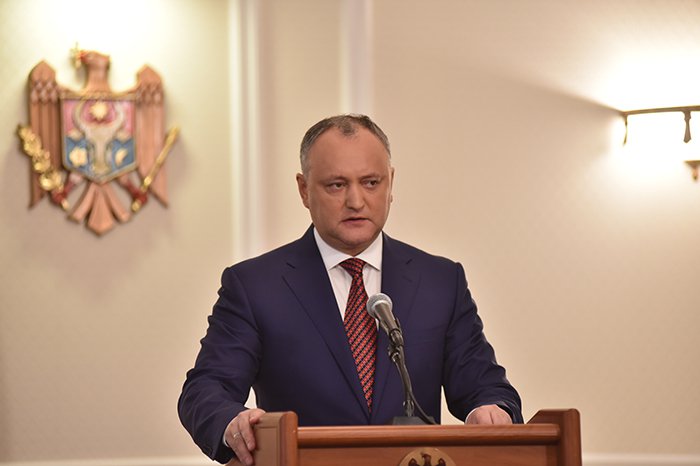Moldovan president proposes introduction of mixed electoral system
14:42 | 18.04.2017 Category: Political
Chisinau, 18 April /MOLDPRES/ - President Igor Dodon told a today’s news conference that he would not back the Democrats’ initiative on the implementation of the uninominal voting and proposed introduction of the mixed electoral system.
According to Dodon, the mixed electoral system implies the election of 51 MPs on party lists and another 50 in territorial electoral districts. “I propose that a half of the 50 lawmakers elected in electoral districts be from the Diaspora and the left bank of Dniester. Given that at least one third of Moldova’s citizens are outside the country and in the eastern districts, which are not under Chisinau’s control, I believe that they should be represented by 25 per cent of all MPs. Another 25 per cent will be lawmakers elected from districts and the Moldovan capital. The voting of the MPs from Transnistria will be made in polling stations opened on the territory under the constitutional control of Moldova’s government,” Dodon noted.
The head of state also proposed that the Diaspora benefits from a larger number of ballot papers at the next elections and students are to be able to express their electoral option also on the territory of the settlements where they study. “I propose that the voting in the Diaspora be ensured for two days, so that the access of voters who are far from polling stations be facilitated. The number of electoral districts is to be established in line with the official data presented by state institutions. Also, I insist that the number of signatures needed for the registration of an electoral candidate be reduced to 600. Also, I reiterate my position on the cut in the number of MPs from 101 to 71,” Dodon said.
Contacted by MOLDPRES, the Democratic Party’s press service said that it would soon come up with a press release on this subject.
A draft law on the amendment of the Electoral Code and switch to the uninominal voting was registered in parliament on 14 March 2017. The document was initiated by a group of MPs from the parliamentary majority and sent to the Venice Commission for expert examination.
(Reporter A. Zara, editor M. Jantovan)

